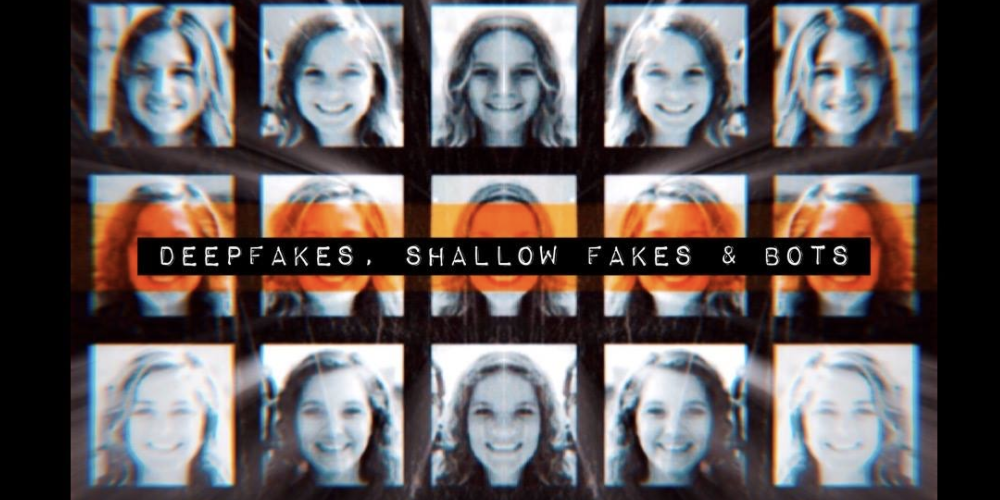Story I/O Returns in a New Virtual Format to Take on Trust in an Age of Deepfakes & Bots
Story I/O returned last month for a virtual day of storytelling, design, play and collaboration. Story I/O (input/output) is an immersive symposium that mixes thinking & doing. It is run out of Columbia University’s Digital Storytelling Lab (DSL). The DSL’s mission is to explore new forms and functions of storytelling while encouraging cross-disciplinary collaboration, focusing specifically on the ways in which story can be harnessed as a tool to innovate, educate, mobilize, communicate, and entertain. This year marked the fourth iteration of the annual prototyping event, and the first time the event took place virtually.
The event was facilitated by Lab Director and Associate Professor Lance Weiler and the DSL team. Weiler is an award-winning storyteller and entrepreneur. His recent award-winning immersive storytelling project, Where There’s Smoke, is currently touring. It had its world premiere at the Tribeca Film Festival.
This year, Story I/O explored the theme of “Digital Literacy in the Age of Misinformation and Deception.” The technology surrounding misinformation (deep fakes, manipulated audio, etc) is rapidly evolving while the laws and policies that govern these processes fail to evolve in real time. In this vacuum of moderated content, where disinformation is ubiquitous, how can we trust what is real and what is fake? Story I/O turns to immersive storytelling to answer this question. At the core of this experiment are the following questions: “How might we co-create virtual spaces that by design, encourage civil discourse around challenging issues, and help people develop a capacity for collectively identifying misinformation and deception while also providing shared literacy tools that assist communities in identifying what is real or fake?”
It’s clear many people are interested in these same questions. More than 70 people attended the event, “zooming in” from everywhere from India, Spain, New Zealand, Belgium, New York, and many other countries and states. When participants arrived, they were asked to complete an initial activity via Miro, an online collaborative whiteboard platform. This prepared participants for the form of the day itself, as Weiler and his team guided them through larger group conversations, or let them work as one big team during the immersion portion of the event.
After an initial welcome, all participants were paired up in breakout rooms where they were asked to complete what Weiler referred to as the “Five Times Why” icebreaker. In this icebreaker, participants asked their partners the same question—“Why are you here today?”—five times in a row. It was an excellent primer to the day of collaboration that would unfold.
Participants were then dropped into an immersion experiment that the DSL is prototyping for their current project. With the use of multiple technologies, including Miro, bots, artificial intelligence, and machine learning, participants were tasked with evaluating text/images, finding clues, and piecing together what exactly was going on. As summarized by one of the event facilitators, the project is interested in the fusion of entertainment and education.
While the immersion focused on the ways in which digital spaces can be littered with misinformation and manipulation, the last section of the event focused on how we might create places so that trust is not only possible, but actively present. Participants were asked to engage in the process of “virtual placemaking” in which they identified the elements that made public spaces work best for their communities, and reimagined them in a digital landscape. Each team created their own version of a digital space that promoted trust, connection, and collective sensemaking.
As noted during the event, “spaces shape our beliefs and behaviors, even if they feel invisible.” The event forced participants to not only confront those invisible forces, but reimagine our relationship to them, together.
Story I/O is an annual prototyping event put on by the DSL. Further information regarding their upcoming events can be found on their webpage.
